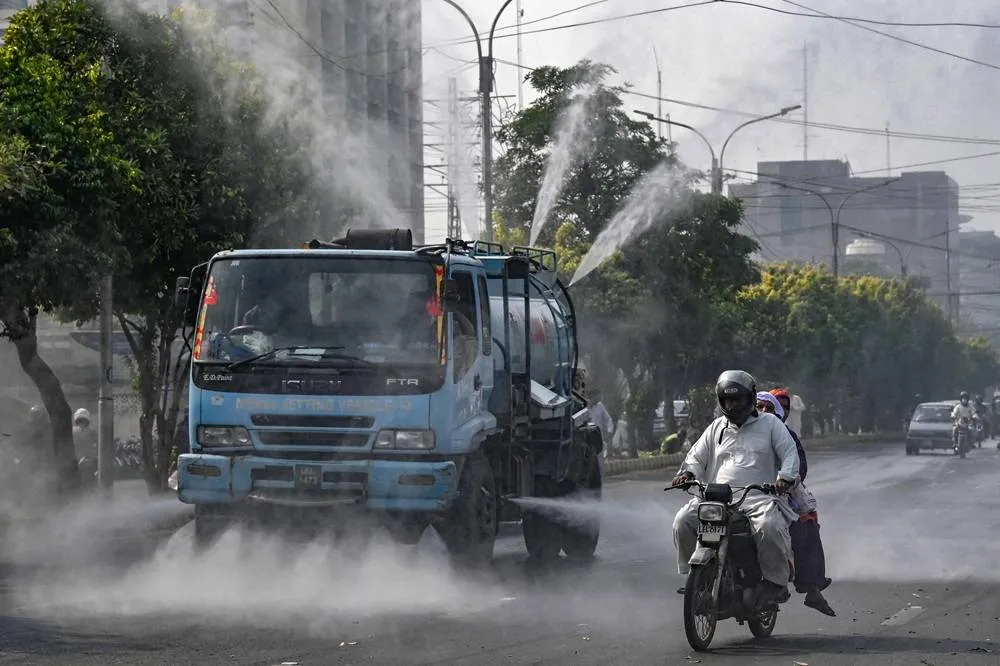Lahore, once known as the city of gardens, now ranks among the most polluted cities in the world. Its thick smog, caused by vehicular emissions, industrial waste, and seasonal crop burning, has turned into a silent health crisis. While many people associate bad air with coughing or watery eyes, few realize that air pollution affects far more than just the lungs it also alters what flows through your veins. The quality of air you breathe in Lahore can profoundly impact the quality of your blood, influencing everything from oxygen transport to immune response.
Understanding What’s in Lahore’s Air
To grasp how air pollution impacts your blood, it’s crucial to understand what you’re inhaling daily. Lahore’s air is filled with fine particulate matter, commonly referred to as PM2.5 and PM10. These microscopic particles are small enough to enter your bloodstream through the lungs. The air also contains nitrogen dioxide (NO₂), sulfur dioxide (SO₂), carbon monoxide (CO), and heavy metals such as lead and arsenic.
During smog season, which typically peaks from October to February, air quality levels often exceed the World Health Organization (WHO) safety limit by several times. This chronic exposure doesn’t just irritate your respiratory tract it triggers a cascade of biological changes inside your blood.
How Air Pollution Affects Your Blood
When polluted air enters your body, your lungs act as the first line of defence. However, fine particles and gases easily cross the lung barrier and enter your bloodstream. Once inside, they begin to interfere with vital blood functions in the following ways:
1. Reduced Oxygen Levels
Carbon monoxide, a major pollutant from vehicles and industrial activity, binds with hemoglobin more readily than oxygen. This reduces the blood’s oxygen-carrying capacity, leading to fatigue, headaches, and in severe cases, cardiovascular strain.
2. Increased Blood Clotting
Studies have shown that air pollution can make blood thicker and more prone to clotting. The inflammation triggered by pollutants activates platelets cells responsible for clot formation which can raise the risk of heart attacks, strokes, and hypertension.
3. Oxidative Stress and Cellular Damage
Tiny particles, especially PM2.5, generate free radicals unstable molecules that cause oxidative stress. This oxidative stress damages blood cells and the lining of blood vessels, contributing to the development of atherosclerosis, a condition where arteries harden and narrow.
4. Altered Immune Function
Polluted air affects the white blood cells responsible for fighting infections. Chronic exposure to toxins can lower your body’s immunity, making you more vulnerable to viral and bacterial illnesses, and in the long run, it can even lead to autoimmune complications.
5. Changes in Blood Composition
Continuous exposure to heavy metals and pollutants has been linked to altered levels of red and white blood cells, hemoglobin, and even platelets. These changes may not be immediately noticeable but can gradually affect your energy levels, metabolism, and organ function.
Visible Signs That Air Pollution Is Affecting Your Blood
While the damage often happens silently, your body might send subtle warning signs. People exposed to Lahore’s polluted air for extended periods might experience:
- Persistent tiredness and shortness of breath
- Frequent headaches and dizziness
- Pale or dull skin tone due to poor oxygenation
- Increased heart rate or chest discomfort
- Recurring respiratory infections or allergies
These symptoms might seem mild, but they can indicate that your blood oxygen levels and circulation are compromised.
The Link Between Air Pollution and Chronic Diseases
Research conducted in urban centers similar to Lahore has linked long-term exposure to polluted air with chronic illnesses such as:
- Cardiovascular diseases: Blood vessel damage, high blood pressure, and increased risk of heart failure.
- Anemia: Due to reduced red blood cell count and lower hemoglobin production.
- Diabetes: Inflammation from pollutants interferes with insulin sensitivity.
- Cancer: Heavy metals and chemicals like benzene in polluted air can lead to mutations in blood cells, raising the risk of leukemia.
In Lahore, where smog levels stay dangerously high for several months, these risks are amplified.
How You Can Protect Your Blood Health
While you can’t completely escape the air you breathe, there are practical steps you can take to minimize damage and monitor your blood health.
1. Monitor Air Quality Daily
Before stepping out, check the Air Quality Index (AQI) through reliable apps. On days when levels are “Unhealthy” or “Hazardous,” limit outdoor activities, especially early mornings and evenings when smog is densest.
2. Use Air Purifiers at Home
Investing in a good HEPA filter air purifier can significantly reduce indoor pollution. Pair it with houseplants like snake plants and peace lilies, which naturally absorb toxins.
3. Wear a Mask Outdoors
High-quality masks such as N95 or KN95 can block fine particles and protect your lungs and bloodstream from harmful pollutants.
4. Boost Your Blood Health Through Diet
Antioxidant-rich foods like spinach, beets, citrus fruits, and nuts help combat oxidative stress. Iron-rich foods such as red meat, lentils, and leafy greens support red blood cell production.
5. Stay Hydrated
Water helps flush toxins out of your bloodstream and supports healthy circulation. Aim for at least 2–3 liters daily, especially during smog season.
6. Get Regular Blood Tests
Routine blood testing can help identify early signs of pollution-related changes, such as altered hemoglobin or platelet levels. This allows for timely interventions before conditions worsen.
Get up to 20% discount on Ayzal Laboratory tests
Looking Ahead: A Call for Awareness
Lahore’s air quality crisis is not just an environmental concern, it’s a public health emergency. Every breath of polluted air silently alters your body’s chemistry. While policy changes and emission control are essential long-term solutions, personal awareness and proactive health monitoring are vital right now.
By understanding the link between air quality and blood health, you can take steps to protect yourself and your family. After all, the air you breathe is the foundation of life and the state of your blood reflects the quality of that air.


